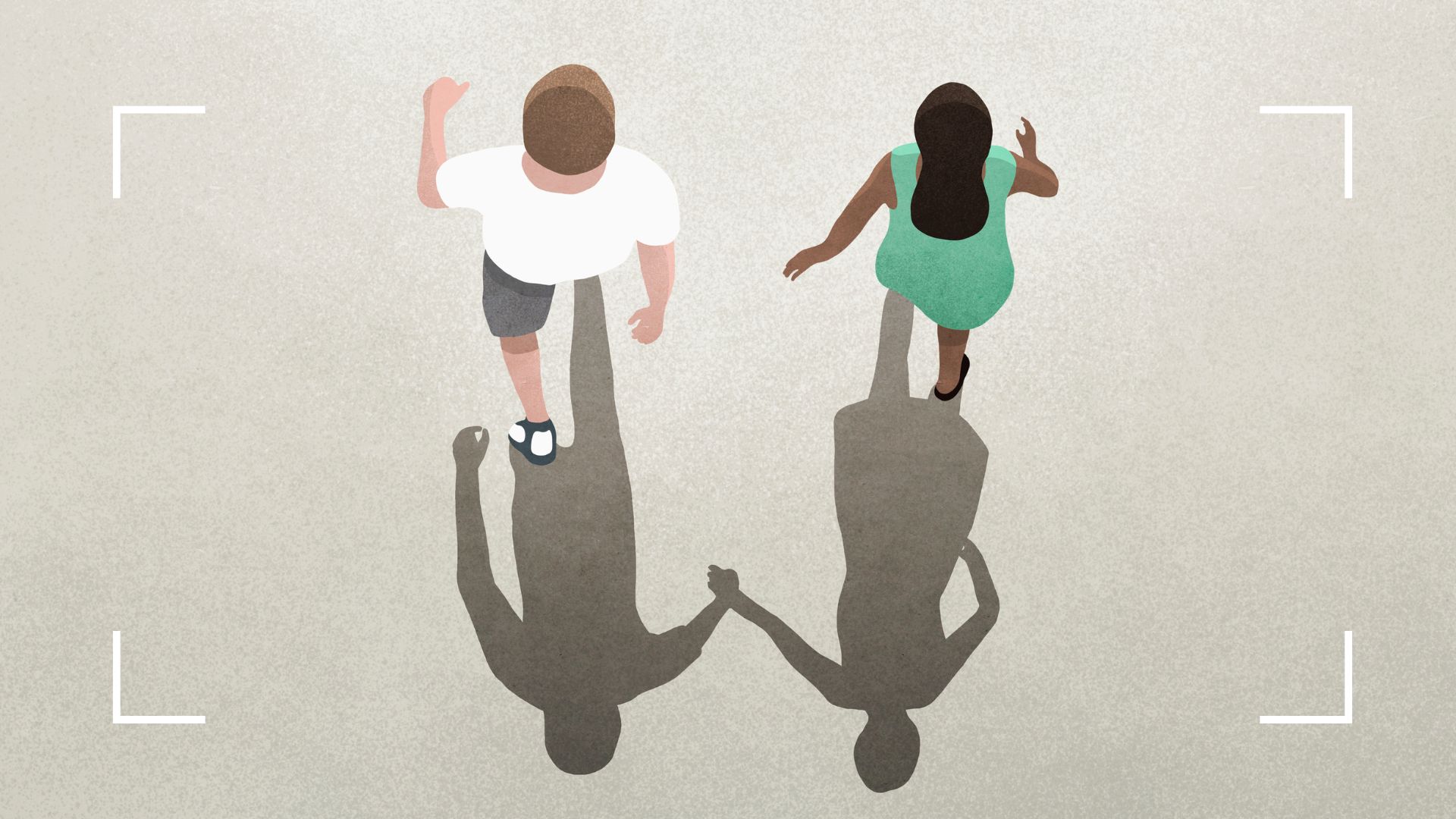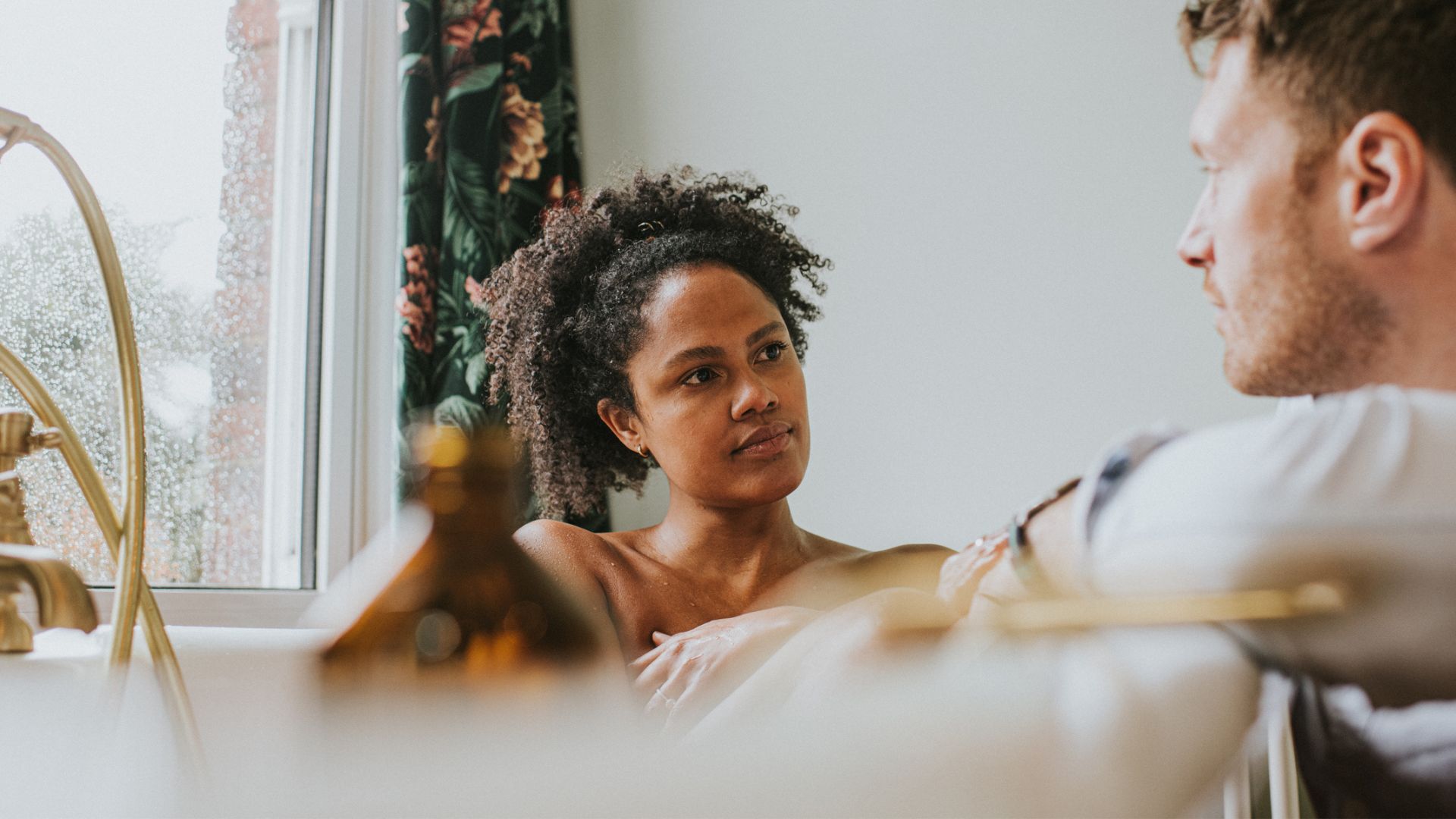How to stop being codependent: 7 tips from psychotherapists to help you find independence again
Finding independence in a relationship by learning how to stop being codependent can be a journey. Here, two therapists reveal the first steps to take


Find yourself relying on your partner's wellbeing for your own happiness a little too much? While we naturally care about the people we love and want them to be happy, it may be time to learn how to stop being codependent if you find your relationship, friendship, or family caregiving is causing you emotional distress and knocking back your confidence.
Codependency is an imbalanced relationship where someone is emotionally and physically reliant on another person. That person could be a romantic partner, friend, or family member, either way, these relationships often lead to negative fallouts for all those involved.
It can be difficult to change the habits that lead to codependent relationships - but it's also entirely possible with active self-care, therapy, and a good support network. Here, woman&home speaks to two psychotherapists to reveal how to stop being codependent and tips on how to be happy in a relationship again in the future.
What is codependency?
The idea of codependency, according to a wide review linked to Kingston and St George’s University of London, was originally coined in the 1940s to describe those who had substance misuse disorders, like alcohol dependency. But today, codependency, as we see it in relationships, refers to a cycle between partners where one person needs the other, who needs to be needed by their partner.
Those in these relationships are known as the 'giver' and the 'taker'. As the names might suggest, the 'giver' is often codependent and may feel unloved or worthless if they feel they are not needed by the enabler of this dynamic, the 'taker'.
Codependency is something that Mental Health America also refers to as "relationship addiction" as codependent dynamics are often one-sided, emotionally destructive, and/or even abusive, they say. However, codependency is also one of the most common relationship issues as many people fall into codependent relationship patterns unconsciously, so it may not be a malicious situation from the outset.
Recognizing the signs of codependency can be the first step forward to understanding if it's the problem you're dealing with or something else, like an extreme form of relationship anxiety. As revealed by counseling psychologist Dr Rina Bajaj, these are the main signs of codependency to look out for:
Sign up for the woman&home newsletter
Sign up to our free daily email for the latest royal and entertainment news, interesting opinion, expert advice on styling and beauty trends, and no-nonsense guides to the health and wellness questions you want answered.
- Difficulty setting boundaries: "Codependent individuals often struggle to establish and maintain healthy boundaries," says Dr Bajaj, who is also the author of The Magic In Me. "They may have a hard time saying 'no' to others and feel responsible for other people's feelings, actions, or wellbeing."
- Always putting others' needs first: "Codependent individuals tend to prioritize the needs and desires of others over their own. They may go to great lengths to please others, seeking validation and approval as a way to boost their self-esteem."
- Fear of abandonment: This is more than a fear of breaking up, she says. "Codependent individuals often have an overwhelming fear of being abandoned or rejected. This fear drives them to stay in unhealthy or toxic relationships, even when their own wellbeing is compromised. They may cover up or make excuses for the actions of others, enabling them to continue harmful behaviors."
How to stop being codependent
1. Develop self-awareness
Recognizing that you are in a codependent relationship, friendship, or other dynamic is the first step to learning how to stop being codependent, Dr Bajaj says.
"Develop self-awareness by examining your thoughts, emotions, and behaviors in relationships. Recognize and acknowledge the codependent patterns and dynamics that exist," she says. "This awareness is a crucial first step towards change."
2. Discover what a healthy relationship looks like
If you've been in a codependent relationship for a while, you may well have forgotten what a healthy relationship looks like. But once you've established you are codependent, Dr Bajaj says, you can start to educate (or re-educate yourself) on what it means to be content and happy with boundaries and self-care practices in place.
As part of this, it may be beneficial to understand the root causes and dynamics of your particular codependent relationship. "It can help you gain insights and develop strategies for change," she says. "It can also help you to challenge and reframe negative beliefs and thought patterns so that you can replace self-critical thoughts with more compassionate and empowering ones." To do this, it's best to find a certified therapist.
3. Learn your attachment style
Our upbringing can have a huge impact on how we create relationships as adults. "Growing up in families where there was dysfunction, addiction, neglect, abuse, or enmeshment can increase the likelihood of developing codependent behaviors as a way to cope with the challenging environment," says Dr Bajaj.
It's in these early years that we develop our attachment styles too. We often think of these in terms of romantic relationships but the way we need to give and receive love can stretch to many different areas of life.
Those who are codependent often have insecure attachment styles, research from the University of Minnesota outlines, which explains the fears of abandonment and the desire to be constantly needed by their partner.
Understanding this can be key to learning how to stop being codependent as you become more aware of how you behave in your relationships, friendships, and other dynamics, and better able to address the issues.

4. Resist the urge to control or rescue your partner
"Resist the urge to control or rescue someone else, or seek to fix a situation that is not your personal responsibility," says Noel Bell, psychotherapist and member of the UK Council for Psychotherapy (UKCP). For example, if you find yourself in a codependent, toxic friendship and decide you want to get out, and your friend reacts negatively to this decision, try to avoid compromising to make them happy.
"Acknowledge your own behavior and be brave to go on a personal journey of learning new ways of behaving," he says. "This could involve better understanding the origin of your own relationship expectations."
5. Set boundaries
In the process of learning how to stop being codependent, this is an important step, the experts agree. Boundaries are non-negotiable deal breakers in a relationship that your partner or friend should not cross. If you've been in a codependent relationship, these may not be something you've established and you may need to learn how to be confident again to establish those important boundaries.
"Learn to prioritize your own needs, desires, and wellbeing," urges Dr Bajaj. "Establish clear and healthy boundaries in your relationships, practice saying 'no' when necessary, and communicate your boundaries assertively and respectfully."
Psychotherapist Bell agrees. "This means identifying what your red flags and deal breakers are for what you want from others in all areas of your life. Are your values being honored in all of your personal relationships? If not, when do you walk away?" he asks.
To help you consider this, Dr Bajaj recommends you surround yourself with those who "encourage and reinforce healthy relationship dynamics." Whether that's old friends, family members, or support groups, they should be people who actively respect your boundaries and support your personal growth.
6. Find confidence in yourself
Codependency is often linked to low self-esteem, Dr Bajaj explains. "Codependent individuals may have a poor self-image and rely on external validation and acceptance to feel worthy and valuable as their sense of self and identity is influenced by how others see them," she says.
So, on the road to learning how to stop being codependent, you may have to learn how to be more confident.
"Focus on building your self-esteem and self-worth independent of external validation," says the psychologist. "Cultivate self-compassion, recognize and celebrate your strengths and accomplishments, practice self-care activities that support your mental, physical, and emotional wellbeing, and engage in activities that bring you joy and fulfillment."
6. Focus on your own growth
With this in mind, it's time to prioritize yourself. "What do you want to do in life, with your plans, aims, and dreams?" asks Bell. "Codependent people often become overly attentive to the needs of others, and end up losing sight of what they really want themselves."
These can be big questions to ask yourself, especially if you've just come out of a relationship where your plans, aims, and dreams were all completely tied up in another person. Be selfish for a moment, consider what you want from your own life. And if you need a little help with how to do that, check out our guide on how to be happy alone.
Why did I become so codependent?
There are several reasons why someone might become codependent, says Dr Bajaj and psychotherapist Noel Bell.
- Upbringing: "Codependency typically has its origins in dysfunctional families," says Bell. "When there are active addictions present among caregivers and children experience or perceive some form of abandonment and where there might have been parenting styles that were under protective. But codependency can also develop when parents were overprotective. In seeking to shield children from possible negative consequences, caregivers potentially remove the possible learning opportunities that come from such events."
- Personality traits: However, some people are more prone to codependency than others based on certain personality traits. "These traits can include a strong need for approval, fear of abandonment, low self-esteem, difficulty setting boundaries, excessive people-pleasing, and an excessive sense of responsibility for others," says Dr Bajaj.
- Trauma: "Serious trauma like emotional, physical, or sexual abuse, can contribute to the development of codependent tendencies," says the doctor.

Grace Walsh is woman&home's Health Channel Editor, working across the areas of fitness, nutrition, sleep, mental health, relationships, and sex. She is also a qualified fitness instructor. In 2025, she will be taking on her third marathon in Brighton, completing her first ultra marathon, and qualifying as a certified personal trainer and nutrition coach.
A digital journalist with over seven years experience as a writer and editor for UK publications, Grace has covered (almost) everything in the world of health and wellbeing with bylines in Cosmopolitan, Red, The i Paper, GoodtoKnow, and more.